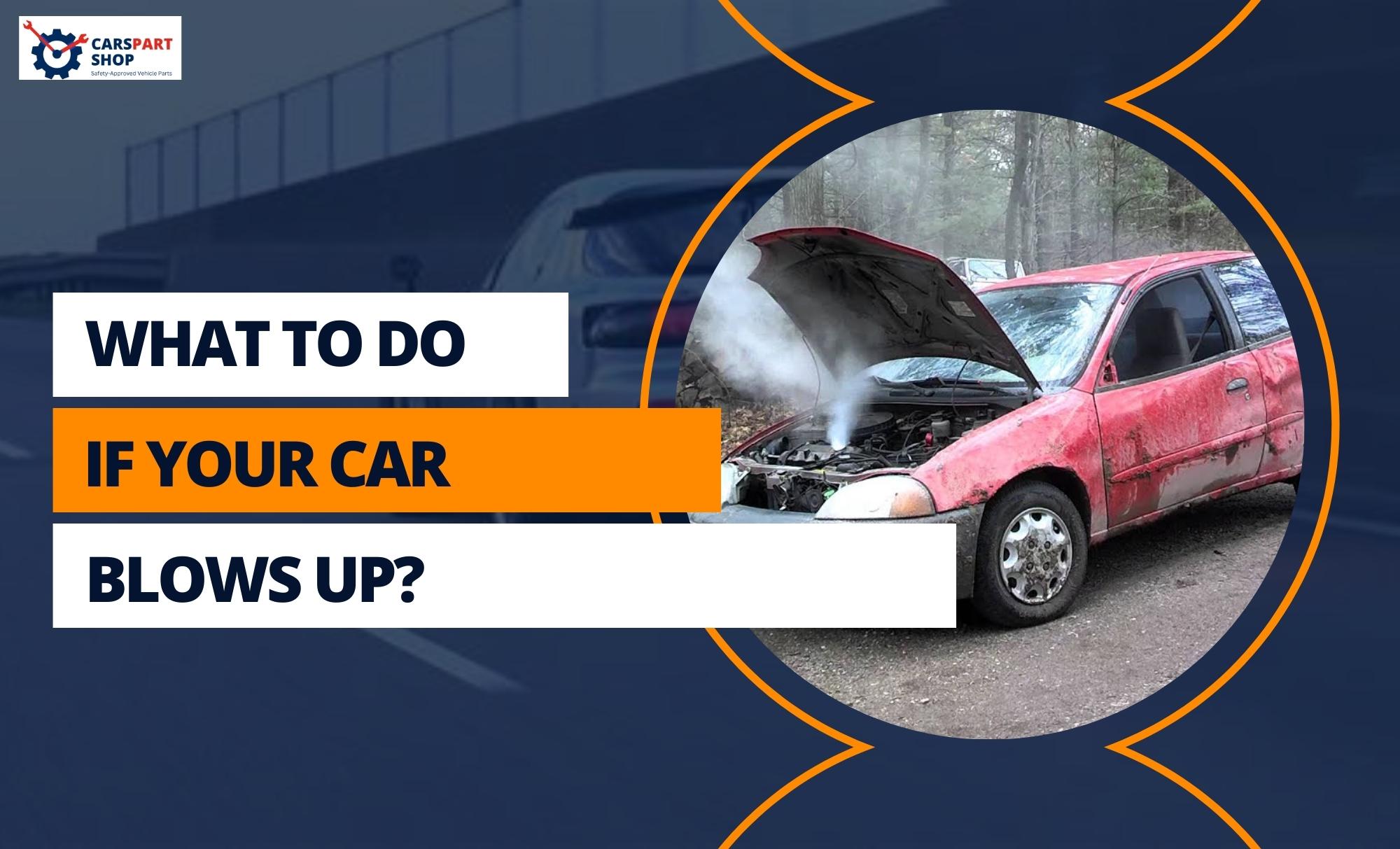A car is a complicated machine with electrical and mechanical components. With many flammable liquids, complex electric wiring, and frictional components, the most common hazard in a car is fire. Fire on a running car could be fatal, as it could damage the critical parts of the car.
Every driver should understand the leading cause of car fires and a way to avoid them.
Through this blog, we will learn about the hazardous scenarios which cause a vehicle to catch fire. We will provide preventive measures to avoid a fire in your car. Here are the things about Car Fire Safety and what you should and should not do if your car catches fire.
What types of factors are involved in a car on fire?
A car may catch fire at the time of a tire burst, collision, electrical failure, or leakage of fuel. The reason could be any, but a fire in a moving car is hazardous because you must bring the vehicle to a deadlock to escape danger. Fire in a standing car brings many challenges. However, here are these factors involved in a car on fire.
⦿ Electric Vehicle Batteries
In 2013 three tesla motor vehicles catch fire, leading to deliberate that electric vehicles have a high risk of fire than normal vehicles. Although, this is different for modern batteries vehicles used today.
Moreover, using huge batteries have the integral risk of car burning. Usually, fire involves combinations of many parts. Since 2013’s report, the counting of electronic vehicles has increased.
⦿ Spilled Fluid
Most vehicles have flammable liquids under the hood and in the gas tank. A flicker from the crash can cause the fluids to catch fire. It includes engine oil, brake fuel, transmission fluid, and a few other fluids.
Most fluid substances catch fire inside the hood. Also, some of those related to brake fluid and fuel will happen at some point inside the vehicle. In most cases, safe driving and responsible maintenance practices can prevent many fluid-related fires.
⦿ Flaws In Vehicle Design
It can be challenging to find a dangerous vehicle design flaw in the vehicle. Many people have been driving with defective parts for years and are unaware of them until they cause a severe problem. Faulty parts are dangerous when playing a role in the control or operation of the cars, such as the braking systems or steering.
⦿ Poor Maintenance
Owners can prevent vehicle fire if they maintain their vehicles timely. Leaky seals, Broken parts, and faulty wiring may lead to a spark, leaks, and fires. These are the common reasons for fires.
In some exceptional cases, the owner of the car takes the vehicle for maintenance, but still, the work which needs to do in the right way needs to be done correctly. It can also be the reason for the fire. The situation might help a lawsuit or liability claim.
⦿ Traffic Accidents
Accidents are the most common reason behind cars blowing up. It just needs a spark to start the car on fire, especially the flammable fluids present in the vehicle. In the past, this was common. Fire especially starts when it directly collision the fuel chamber.
Luckily, most modern cars have crease zones that save gas tanks, traveler’s compartments, and other sensitive areas. Therefore, modern tanks are challenging and easy to break, even under severe damage or compression.
In the event of car blowing up , your car hood also get damaged. If you are looking for car hood replacement, you can save money by choosing Cars Part Shop.
What to do if your car blows up?
If you ever find yourself in a position where your car blows up and released flame or smoke, then here are the following steps:
• Signal and move to the safest place you can find to stay.
• Turn off your vehicle immediately.
• Go away from the vehicle and instruct everyone to do the same. Refrain from bringing any goods. It is not worth taking the risk in such an explosion situation.
• Move away from the vehicle as much as you can. Ideally, you have to move at least 75 feet far away to avoid inhaling toxic chemicals and fumes.
• Call the emergency number immediately for service.

Remember that you will not try to put the fire out by yourself or open the hood. Any added oxygen or airflow can result from the car burning out at a quicker pace. If anyone from the outside party approaches the car, warn them to stay away. Once emergency services come, keep following their instructions.
FAQs
While some cars catch fire because of collisions, it can more frequently cause problems with the car’s electrical wiring and fuel system, or if cigarettes are left in the car, leaving them inside the vehicle can cause the engine to catch fire. Your best way of defense is to check these systems out at every service.
Yes, it is possible, but this is rare nowadays. Cars catch fire mainly due to mechanical or electrical reasons. Indicators that a vehicle could likely catch fire are rapid changes or loose wiring, oil leaks, fuel levels, or the engine temperature.
The topmost cause of a vehicle fire is decaying fuel lines that leak diesel or gasoline into the hot engine parts. Gasoline at 45 degrees temperature or above will catch fire from a simple spark, and the second most common cause is the electrical system of car fires.







